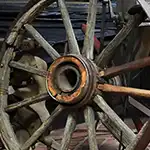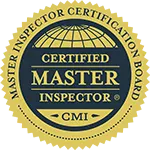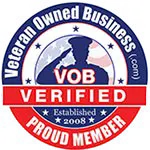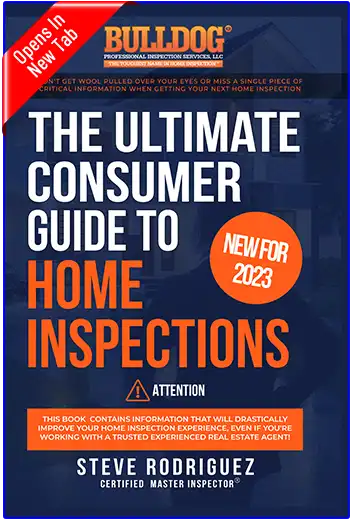Top-Rated House Inspection Company in Raytown MO.
+ FREE termite inspection with every package ($85 value)
“Great inspection. Explained potential issues well and was very personable and friendly. Thanks a lot!” – P. White, Raytown, MO.
Table of Contents
- Raytown House Inspections Packages & Prices
- Top-Rated House Inspection Company in Raytown MO.
- Meet Your Raytown House Inspector
- FREE – Your Guide to Top-Rated House Inspections in Raytown MO.
- 30 Min. DIY Home Inspection Checklist – Only $18.99
- Available house inspection services in Raytown MO.
- Frequently Asked Questions
Here’s How It Works
Raytown House Inspections Packages & Prices
FULL HOME INSPECTION + TERMITE
BETTER
$445*
*up to 1499 sq.ft.
FULL HOME INSPECTION + TERMITE + RADON
BETTER +
$570*
*up to 1499 sq.ft.
FULL HOME INSPECTION + TERMITE + SEWER
BETTER +
$645*
*up to 1499 sq.ft.
FULL HOME INSPECTION + TERMITE + RADON + SEWER
BEST
$770*
*up to 1499 sq.ft.
5-POINT MAJOR ITEMS INSPECTION
GOOD
$395*
*any size
Top-Rated House Inspection Company in Raytown MO.
Delivering exceptional house inspections in Raytown MO., Bulldog Professional Inspection Services is committed to providing premier house inspections for property buyers and real estate investors.
Our top-rated house inspection company take a thorough look at every available location of the property, from the roofing to the structure. This in-depth inspection provides you with the essential insights to make educated decisions and prevent potential issues.
Whether you’re buying a house for your loved ones or investing in properties, count on Bulldog’s licensed, experienced, and top-rated house inspection company in Prairie Village KS to guide you through the process.
⭐⭐ Real Customer Review ⭐⭐
Real Customer Review
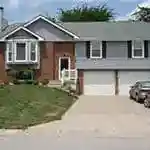
“I’ll be referring Steve to my friends and family.”
“Steve was very nice, thorough, and helpful. This made for a memorable experience, and I’ll be referring Steve to my friends and family.”
– P. Baker, Raytown MO.
Raytown MO. began as an $800 treaty way back in 1826.
Back then, the area reminded the founders of the Blue Ridge mountains so much that they named the area Blue Ridge and the nearby rivers Big Blue and Little Blue.
Then they named Raytown after William Ray, a blacksmith who set up shop on the Santa Fe Trail in 1848 then later the location of Rice-Tremonti, the oldest framed home in Jackson County.
But, before you start forwarding your mail, you’ll want a top-rated house inspection company in Raytown MO., so your new home doesn’t make you want to run for the hills.
Actual Raytown house inspections.
![Top-Rated House Inspection company in Raytown MO. [1]](https://bulldoginspect.com/wp-content/uploads/2023/09/home-inspection-raytown-mo.webp)
![Top-Rated House Inspection company in Raytown MO. [2]](https://bulldoginspect.com/wp-content/uploads/2023/09/home-inspection-raytown-mo-1.webp)
Meet Your Raytown House Inspector
Certified Master Inspector® Steve Rodriguez happily uses impressive home inspections in Raytown MO.
He emphasizes clear, thorough reports that are easy to understand now and in the future. Bulldog’s award-winning service surpasses determining problems; it’s about offering long lasting clarity and confidence for as long as you own your home.
FREE – Your Guide to Top-Rated House Inspections in Raytown MO.
30 Min. DIY Home Inspection Checklist – Only $18.99
Check the Bones YOURSELF While You Tour the Home.
This straightforward field guide is based on our Major-Items Inspection and focuses ONLY on the bones. It shows you:
- WHERE to look
- WHAT to look for
- WHAT it means
All in the time it takes to tour the home.
Let us help you decide if the home has good bones or is just a money pit in disguise – BEFORE you make an offer and BEFORE you call a top-rated house inspection company.
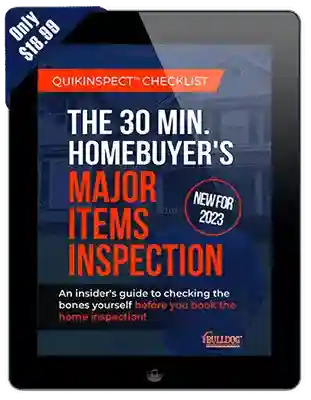
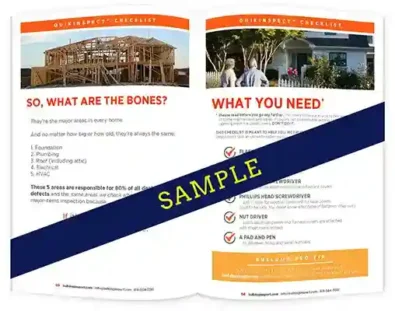
Created by a Certified Master Inspector®
13 Pages Fully Illustrated
Immediate PDF delivery + flipbook
Save time and hundreds – sometimes thousands – in wasted home inspection fees.
All in about 30 minutes
Use it over and over
Find out if there are MAJOR ISSUES hiding in plain sight before you order a Raytown MO. house inspection.
Available house inspection services in Raytown MO.
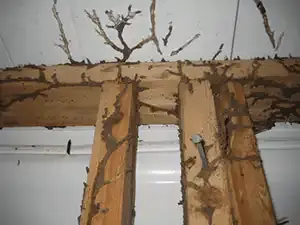
Termite Inspections
Subterranean termites are a typical issue in Raytown MO., often consuming wood around homes. A termite inspection can reveal evidence of these pests and inform you if treatment is essential. Regular home inspections are necessary to avoid pricey damage and repairs.
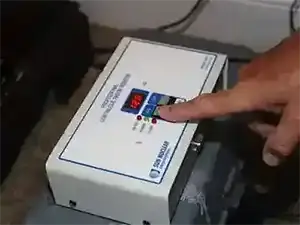
Radon Testing
Radon gas, an undetectable and odor free radioactive substance, provides a considerable lung cancer threat when exposure is lengthened. To perform an electronic radon test, a specific device needs to be put in your home for a few days to determine the radon levels. Checking for radon is specifically essential in Raytown MO., as the gas can penetrate homes through fractures and gaps in the foundation.
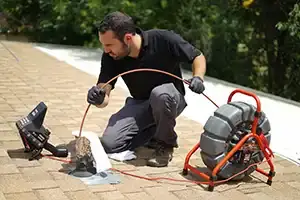
Sewer Scope Inspections
In Raytown MO., a sewer scope inspection involves using a camera to take a look at the pipes linking your home to the primary sewage system line. This procedure is essential as it can identify surprise issues such as obstructions, cracks, or damage from tree roots. Early detection of these problems can avoid costly and substantial repair work in the future.
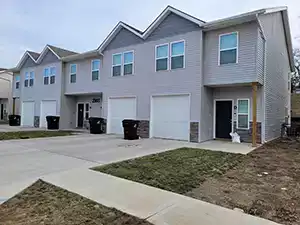
RE Investment Property Inspections
Commercial investment examinations in Raytown, MO. cover both single-family homes and multi-family units. Our comprehensive 5-point major-items evaluation emphasizes vital locations such as the roofing system, structure, electrical systems, pipes, and HVAC units. Knowledgeable professionals can evaluate your investment residential or commercial property, ensuring substantial savings in both money and time over time.
Frequently Asked Questions
Home inspections are not legally required in Raytown, MO, or in the state of Missouri in general. However, they are highly recommended for anyone buying a home. Home inspections can uncover potential issues with the property that might not be immediately visible, providing valuable information to help buyers make informed decisions.
In addition, many lenders, especially those offering government-backed loans (such as FHA or VA loans), require a home inspection to ensure the property meets certain standards before finalizing the loan.
Raytown MO. Home inspections are a crucial step in the home buying process. They help potential buyers understand the condition of a property before finalizing the purchase. Here’s a breakdown of how home inspections typically work:
Scheduling the Inspection
Once your offer on a home is accepted, you usually have a window of seven to fourteen days to get the home inspected. You can schedule an inspection by contacting a certified home inspector. It’s best to do this as soon as possible to ensure you have enough time to address any issues that may arise.
During the Inspection
- Visual Examination: A home inspection is primarily a visual, non-intrusive examination of the property’s condition. Inspectors will look at all accessible areas of the home.
- Key Areas Inspected:
- Exterior: Landscaping, foundation, roof, gutters, downspouts, exterior walls, doors, windows, and attached structures like decks and porches.
- Interior: Walls, ceilings, floors, windows, doors, stairs, and railings.
- Structural Components: Foundation, basement, crawlspaces, and attic.
- Systems: Electrical, plumbing, HVAC (heating, ventilation, and air conditioning), and water heating systems.
- Appliances: Any built-in appliances that come with the house.
Limitations
A home inspection is limited by what can be seen and accessed. Inspectors do not move personal items, furniture, or stored items that might block access to important areas. They also do not perform destructive testing (like cutting into walls) or invasive procedures.
Report and Findings
After the inspection, the inspector will provide a detailed report. This report typically includes:
- Summary: An overview of the major findings.
- Detailed Findings: Specific issues found in each area of the home, often accompanied by photographs.
- Recommendations: Suggestions for repairs, replacements, or further evaluations by specialists.
Post-Inspection Actions
- Review the Report: Go over the report carefully. The inspector should be available to answer any questions you have.
- Negotiations: Use the information in the report to negotiate with the seller. You might ask the seller to fix certain issues, reduce the sale price, or provide a credit towards repairs.
- Further Inspections: If major issues are found, you may need additional inspections by specialists (e.g., a structural engineer or a plumber).
Follow-Up
If the initial inspection was done while the home was occupied or during bad weather, you might need a follow-up inspection (aka a re-inspection) to look at previously inaccessible areas or to verify that agreed-upon repairs were completed.
Why It’s Important
A Raytown MO. home inspection helps ensure that you are fully aware of the property’s condition and any potential issues before you commit to the purchase. It provides peace of mind and can save you from unexpected expenses down the road.
Home inspections are about making informed decisions and ensuring your new home is a safe and sound investment.
When buying a home in Raytown MO., you should consider getting several types of inspections to ensure you have a comprehensive understanding of the property’s condition. Here are the main types of inspections you should consider:
1. General Home Inspection
This is the most common type of inspection and covers a broad range of areas in the home. A certified home inspector will examine the following:
- Structure: Foundation, basement, attic, and framing.
- Exterior: Roof, gutters, downspouts, siding, windows, and doors.
- Interior: Walls, ceilings, floors, doors, and windows.
- Systems: Electrical, plumbing, heating, ventilation, and air conditioning (HVAC).
- Appliances: Built-in appliances like ovens, dishwashers, and garbage disposals.
2. Termite (Wood-Destroying Insects) Inspection
A termite inspection checks for the presence of termites and other wood-destroying insects. These pests can cause significant structural damage if left untreated.
3. Radon Testing
Radon is a colorless, odorless gas that can pose serious health risks. Radon testing measures the levels of radon in the home to ensure they are within safe limits.
4. Mold Inspection
If there are signs of water damage or if the home is located in a humid area, a mold inspection can identify any mold problems that could affect your health and the home’s structural integrity.
5. Sewer Scope Inspection
A sewer scope inspection involves using a camera to inspect the sewer line from the house to the municipal connection. This can identify blockages, breaks, or other issues in the sewer line.
6. Chimney Inspection
If the home has a fireplace, a chimney inspection is crucial to ensure that the chimney is clean, free of obstructions, and structurally sound.
7. Pool and Spa Inspection
For homes with pools or spas, a specialized inspection will check the condition of the pool, the mechanical systems, and safety features.
8. Septic System Inspection
If the home is not connected to a municipal sewer system, a septic system inspection is essential to ensure the system is functioning properly.
9. Well Water Testing
For homes with a private well, water testing ensures the water is safe to drink and free from contaminants.
10. Asbestos Inspection
In older homes, especially those built before the 1980s, an asbestos inspection can identify the presence of asbestos in building materials.
11. Lead-Based Paint Inspection
Homes built before 1978 may have lead-based paint. An inspection can determine the presence of lead paint, which is a health hazard, especially for children.
12. Roof Inspection
A detailed roof inspection can identify potential issues with the roof’s structure, shingles, flashing, and gutters.
13. HVAC Inspection
A more detailed HVAC inspection can be performed by a specialist to ensure the heating and cooling systems are in good working order and are efficient.
14. Foundation Inspection
If there are visible cracks or signs of structural issues, a foundation inspection by a structural engineer can provide a detailed analysis.
15. Electrical Inspection
A detailed electrical inspection can ensure that the home’s electrical system is safe and up to code, especially in older homes or homes with outdated wiring systems like knob-and-tube wiring.
15. Plumbing Inspection
A plumbing inspection involves a thorough examination of the home’s plumbing system to identify any potential issues. This inspection typically covers:
Choosing the Right Inspections
The specific inspections you need can depend on several factors, including the age and location of the home, visible signs of damage, and your own concerns. A general home inspector can often recommend additional inspections based on their findings. Always discuss this with your real estate agent and inspector to determine which inspections are necessary for your particular situation.
Home inspections are not legally required, but they are highly recommended and can be required for certain loan programs:
- Buying a Home: Most home buyers get a home inspection before finalizing the purchase. This helps identify any major issues that could affect the value or safety of the home.
- Selling a Home: Sellers may opt for a pre-listing inspection to find and fix problems before potential buyers see them. This can help make the sale process smoother.
- New Construction: Even new homes can have issues. Getting an inspection before the final walkthrough ensures that everything is up to standard.
- Home Maintenance: Periodic inspections can help homeowners keep their homes in good condition and catch problems early.
- Special Situations: If a home has been vacant for a long time, has experienced extreme weather, or has undergone significant renovations, an inspection can be useful.
- Special Loan Programs: Certain loan programs require a home inspection:
- FHA Loans: The Federal Housing Administration (FHA) requires a home inspection for their loans. The inspection ensures the property meets minimum safety standards.
- VA Loans: The Department of Veterans Affairs (VA) also requires a home inspection to ensure the property is safe, structurally sound, and sanitary.
- USDA Loans: The U.S. Department of Agriculture (USDA) loans require an inspection to ensure the home meets their property standards.
Home inspections are important for several reasons:
- Identifying Issues: A home inspection helps identify potential problems with a property, including structural issues, plumbing defects, electrical problems, and more. Knowing these issues beforehand can save you from unexpected expenses later on.
- Negotiation Tool: The inspection report can be used as a bargaining tool in negotiations with the seller. If significant issues are found, you can request repairs, ask for a price reduction, or even back out of the deal if the contract allows.
- Safety: Inspections can uncover safety hazards like faulty wiring, radon, carbon monoxide, and mold. Addressing these issues can ensure the home is safe for you and your family.
- Future Planning: Understanding the condition of the major systems in the house (like heating, cooling, plumbing, and roofing) helps you plan for future repairs and maintenance. This can aid in budgeting and prevent surprise expenses.
- Peace of Mind: Buying a home is a significant investment. A thorough inspection can give you peace of mind by ensuring you are making a sound investment.
- Insurance Requirements: Some insurance companies require an inspection before issuing a policy. This ensures the home meets their standards and helps prevent future claims.
- Loan Requirements: As mentioned earlier, certain loan programs like FHA, VA, and USDA loans require inspections to ensure the property meets their safety and livability standards.
- Protecting Your Investment: Ultimately, a home inspection helps protect your investment by ensuring you are aware of the property’s condition and any potential issues before you buy. This can save you money and stress in the long run.

